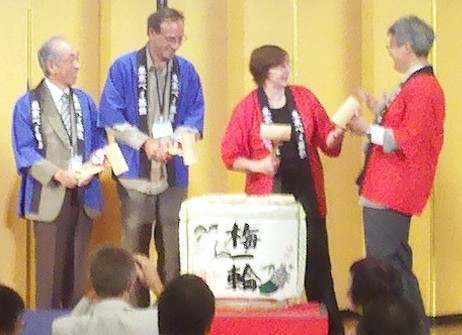80 Wake Up
Alice Yan, "Singing the praises of mainland rap", South China Morning Post, 10/3/2010:
Rapper Shou Junchao , 24, has become a celebrity in Shanghai – people ask for his autograph and want him to pose for photos – after his performance on the hit television show China's Got Talent last month. His act captivated millions of fans, mostly young men, who liked his impromptu rap answers to the judges' questions. Men born after 1980 had mountainous burdens, he said, including mortgages and car loans, and he got a standing ovation when he said that if the luxury handbag you bought for your girlfriend was not as good as other girls' you would get a "bye-bye" from her.
His TV show appearance is here, I think:
Read the rest of this entry »


